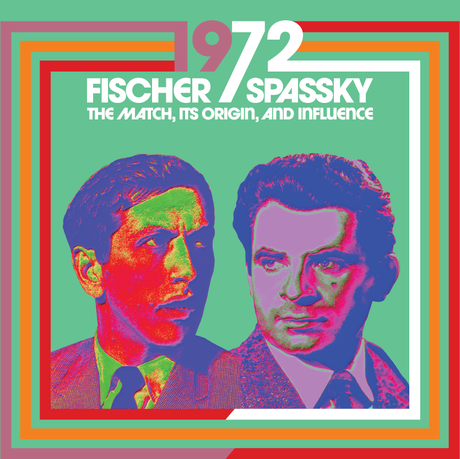Fifty years ago today, Bobby Fischer became the first American-born World Chess Champion.
1972 Fischer/Spassky: The Match, It's Origin, and Influence is a new exhibit at the World Chess Hall of Fame in St. Louis, Missouri to honor that event. My brother, Dale, and I attended last week.

The exhibit took over all three floors of the building.
On the first floor we learn about Bobby Fischer's life before 1972. Here were my favorite displays:
- Furniture from the Hawthorn Chess Club in the home of Jack Collins, who mentored Fischer
- Wall maps of Brooklyn and New York with interactive screens to show the places where Fischer learned and played chess
- A sign-in sheet for a 1955 Manhattan Chess Club event featuring young Fischer's signature
The second floor is devoted to 1972 and the match in Reykjavík, Iceland. I enjoyed learning that both Spassky and Fischer employed physical training into their preparation and that they both used tennis as part of their exercise. The main feature on this floor is a replica of the table where the tournament games were played. While I read all the signs on this floor, Dale sat down and watched one of the Spassky/Fischer games being played on a screen in modern computer chess-play format.
The third floor shows what happened after 1972. Fischer lost his title in 1975 when he declined to defend it and went into years of seclusion. A 1992 rematch made headlines for all the wrong reasons and resulted in Fischer's exile from the US. Later-life comments that were anti-women, antisemitic, and anti-American complicate the way that we remember Bobby Fischer in 2022. The film I reviewed yesterday, Pawn Sacrifice, proposed that some empathy around challenges to mental health might be appropriate.
The popularity of chess rose in 1972. The Fischer Effect produced a blossoming of chess in the US and around the world.
As I mentioned in yesterday's post, I was 10 and Dale had just turned 9 when Bobby Fischer won the Chess World Championship.
The tournament made an impact in our family, living in the small town of Louisiana, Missouri. My dad and brother played through each Spassky / Fischer game the next day from the moves that were published in the Sports section of the newspaper.
Around the time of the Fischer/Spassky tournament, Louisiana briefly had a Chess Club. Due to some family dynamics, Dale and Dad were members, but I was not included. I maintain that there was sexism involved in that. After all, it's hard to imagine the reverse - that a son's interest in chess would be sacrificed in the pursuit of a healthy father-daughter relationship.
After talking to Dale about his experiences, recently, I don't feel quite so bad about it. Chess Club was an opportunity for playing games, but no one had the skills to teach or coach the younger players. Dale improved as much from reading chess books as from participating in Chess Club.
Chess Club functioned long enough to have one Chess Tournament. Dad won it - our small town's champion, like Bobby Fischer on a tiny scale.
I decided more than a decade ago that anything that I might have blamed my parents for in the past is clearly my issue to handle now. So, I signed up for lichess.org with the username Never2Late2Learn. So far, I've been enjoying their learning modules and the puzzles that I can play with the app on my phone. I'm already seeing improvement!
If you find yourself in St. Louis with an interest in chess or how we lived 50 years ago, check out the 1972 Fischer/Spassky: The Match, It's Origin, and Influence exhibit.

About Joy Weese Moll
a librarian writing about books
